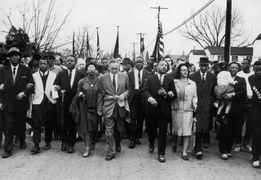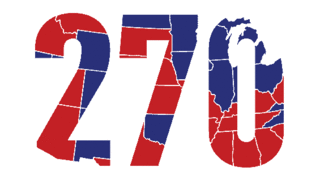Government-US Electoral System-News: Difference between revisions
Jump to navigation
Jump to search
| Line 8: | Line 8: | ||
</gallery> | </gallery> | ||
=====Which US states make it hardest to vote?===== | |||
[https://www.theguardian.com/us-news/ng-interactive/2019/nov/07/which-us-states-hardest-vote-supression-election The Guardian 11/07/2019] | |||
The hardest places to vote in America, considering the strictness of voter identification laws, voter roll purges and felon disenfranchisement. | |||
=====Is America a democracy? If so, why does it deny millions the vote?===== | =====Is America a democracy? If so, why does it deny millions the vote?===== | ||
Revision as of 12:01, 7 November 2019
Curated News Links
Which US states make it hardest to vote?
The hardest places to vote in America, considering the strictness of voter identification laws, voter roll purges and felon disenfranchisement.
Is America a democracy? If so, why does it deny millions the vote?
The United States is ranked 57th in electoral integrity in the world. Compared to other liberal democracies, it is ranked second to last.
These copycat bills on Sharia law and terrorism have no effect. So why do states keep passing them?
The use of copy-and-paste legislation – on topics as varied as asbestos liability and used car sales – is the subject of an investigation by USA TODAY, the Center for Public Integrity and The Arizona Republic. USA TODAY and the Republic found that at least 10,000 bills almost entirely copied from model legislation were introduced nationwide in the past eight years, and more than 2,100 of those bills were signed into law. In a separate analysis, the Center for Public Integrity identified tens of thousands of bills with identical phrases, then traced the origins of that language in dozens of those bills across the country.
How to Game the US Electoral System (Electoral College Version)
How to Game the US Electoral System by Kirk Garber 03/2019
The Electoral College has two major weaknesses as an electoral system so I simply calculated the worst case scenario assuming these two weaknesses were taken to their extreme.
1- It incentivizes voter suppression, so if only one person votes in a state, that person's choice receives all of the Electoral College votes. 2 It's formula for deciding how many Electoral Votes are allotted to each state favors small states over large states (by population). So---- if there is only one person from each of the 41 smallest states (including DC) voting and those 41 people all vote for Candidate #2, that candidate would receive 282 Electoral votes, enough to win the Presidency. It wouldn't matter if all the registered voters from the 10 largest states- 81,000,000 (vs 76,600,000 in the 41 smallest states with DC) vote for Candidate #1, their votes are tossed out.


